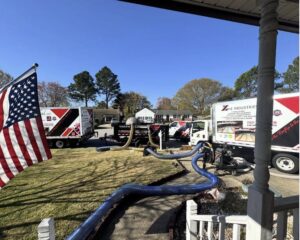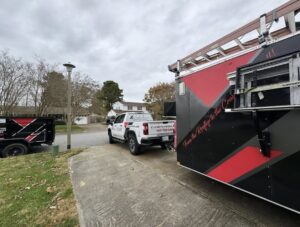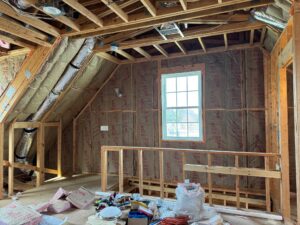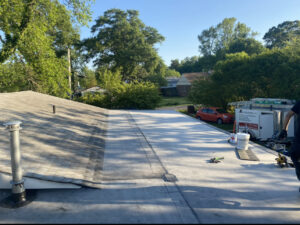Essential Questions to Ask Potential Insulation Contractors
As a homeowner, you play a crucial role in selecting the right insulation contractor for your home. Your decision will significantly impact the energy efficiency, comfort, and long-term savings of your property. While the process may seem overwhelming, we’re here to guide you. We’ve compiled essential questions you should ask potential insulation contractors and important factors to consider, empowering you to make an informed decision.
1. What Materials Do You Use?
A knowledgeable insulation contractor should be able to provide detailed information about the materials they use. Whether it’s spray foam, fiberglass, cellulose, or other types of insulation, understanding the benefits and drawbacks of each material will help you make an informed decision. Additionally, ask if there are alternative materials that might be a better fit for your specific needs.
2. Are You Licensed and Insured?
Ensure the contractor is licensed in the state where they will be working. Licensing demonstrates that the contractor meets local regulatory requirements and industry standards. Also, check for adequate insurance coverage, including liability insurance and workers’ compensation. This protects you from potential liabilities in case of property damage or worker injuries during the project.
3. What Does Your Warranty Cover?
A comprehensive warranty is not just a bonus; it’s a necessity when choosing an insulation contractor. It provides peace of mind, knowing that the product and the installation workmanship are covered. Understanding the warranty details, including what it covers and its duration, will give you confidence in your choice. A good warranty will protect you in case of missed areas, incorrect installation, or any damage caused during the insulation process.
4. Can You Provide References?
Request references from previous clients to gauge the contractor’s reliability and quality of work. Speaking to past customers can provide insights into the contractor’s professionalism, punctuality, and overall performance. Positive testimonials and successful project outcomes are strong indicators of a dependable contractor.
5. Do You Offer a Detailed Quote?
When discussing the project with a potential contractor, they must provide a detailed, written estimate. This should outline all costs, including labor, materials, and additional fees. This level of transparency is key in accurately comparing quotes and ensuring there are no hidden charges, giving you a clear understanding of the full cost of the project.
6. What Is Your Experience and Expertise?
When it comes to insulation projects, experience and expertise matter. Inquire about the contractor’s track record in projects similar to yours. A contractor with a proven track record in residential insulation will likely deliver better results than one with limited experience. Ask about any certifications or training they have completed to stay updated on industry best practices. This will reassure you of their capabilities and give you confidence in their work.
Important Factors to Consider
Material Knowledge and Recommendations
A good insulation contractor should know their products inside and out and be able to provide unbiased recommendations on the best materials for your project. This ensures you get the most efficient and cost-effective solution for your home.
Local Licensing and Insurance
Ensure that your contractor is licensed in your specific state. This is more than a formality—it affects the legal standing and insurance requirements. For instance, a contractor licensed in North Carolina but working in Virginia could leave you vulnerable to legal issues and additional costs.
Warranty Details
When choosing an insulation contractor, consider the warranty’s importance. Warranties can vary significantly from contractor to contractor, covering different aspects of the installation process and materials. A comprehensive warranty provides peace of mind and protection against future problems, making it a key factor to consider.
Insurance Coverage
Both liability insurance and workers’ compensation are non-negotiable. Liability insurance protects you from damages to your property, while workers’ compensation covers injuries sustained by the contractor’s crew while working on your project. Without these, you could be financially responsible for any mishaps.
Final Thoughts
Choosing the right insulation contractor involves more than just picking the lowest bid. By asking the right questions and considering the above factors, you can ensure that your insulation project is completed professionally, efficiently, and to the highest standards. Investing time in the vetting process will pay off in the form of a well-insulated home that saves you money and keeps you comfortable year-round.
For more information and tips on choosing the best insulation contractor, contact us at ZHE Industries. We’re here to help you make the best decision for your home’s insulation needs.








